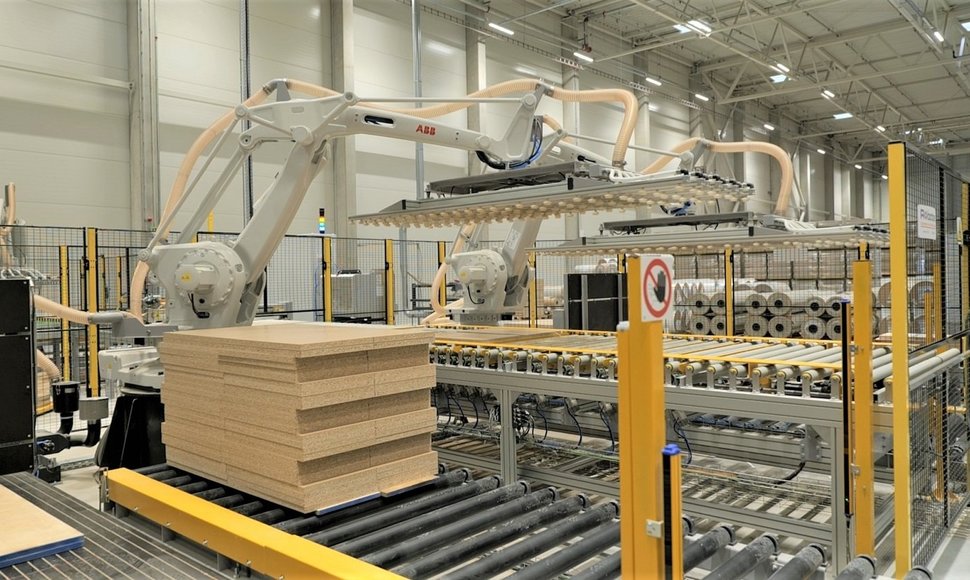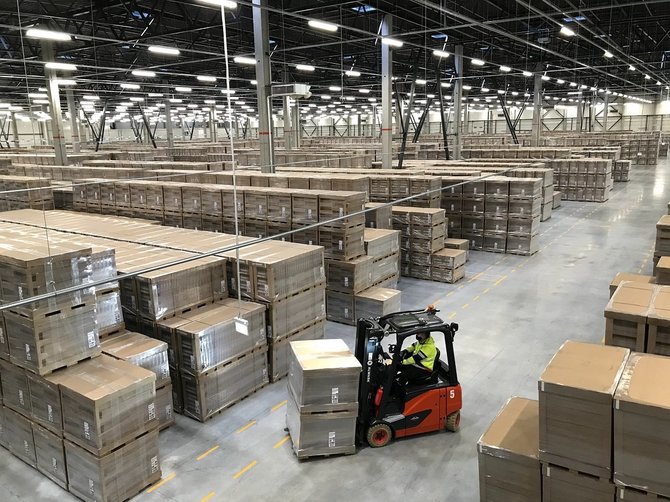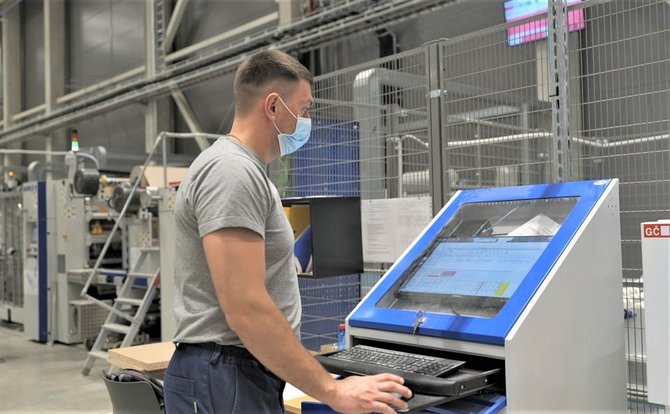“I would compare the entire last year with an exceptionally strong headwind when you have to exert much more energy to travel the same distance. Last year, for the first time in history, we were forced to stop production in all our furniture factories and, after the first wave passed, we were making up for a lost time. Thanks to the efforts of our composed team, we were able to cross the 300 million euro sales milestone, which we achieved for the first time last year. It was crucial that in the heat of the pandemic, we completed strategic projects, which will afford us extra strength to continue increasing our market share in global and truly competitive markets,” SBA VP Egidijus Valentinavičius says.
In 2020, a modern logistics centre managed by Innovo Logistika and the fully automated furniture component factory Laminn was developed and began operating in the SBA Industrial Innovation valley near Klaipėda. In parallel, there was intensive modernisation and expansion of existing factory capacities. Compared to 2019, combined investment into SBA furniture sector capacity development, robots, automation and other manufacturing innovations increased by 40% last year, exceeding 19 million euros.
Last year, the pandemic impacted the entire furniture industry, but even under these circumstances, some of SBA’s companies were able to increase their sales. After about a month and a half of downtime, among the manufacturing companies managed by SBA Baldų Kompanija, Šilutės Baldai was able to slightly exceed its revenue level for 2019, reaching 37.5 million euros in sales. The Šilutė region-based Germanika sold a few percentage points less in its production than the year before, with sales revenue reaching 52 million euros. The group’s largest company Klaipėdos Baldai saw 9% reduced sales as compared to 2019, reaching 78 million euros. One of the largest companies in the Visaginas area, Visagino Linija, sold 74.6 million euros in products, which is 11% less than the year before. The Belarusian company Mebelain saw a 3% decrease in sales, reaching 32.5 million euros. The soft furniture manufacturer Kauno Baldai, which saw vastly increased sales in Germany, also slightly exceeded its 2019 results and earned 20.6 million euros in revenue.
With the rapid expansion in capacity and the variety of products manufactured, the SBA furniture sector employed a further 228 staff members last year, with the entire SBA furniture sector reaching 3,740 employees in total.
One of the most important goals for SBA companies this and last year is ensuring employee health and preventing coronavirus infections. Thus, the companies have already had multitiered inspection and safety systems in place for nearly a year, SBA companies have funded staff coronavirus testing, and numerous other preventative measures are still being applied.
“This year, the sector will continue to face challenges due to supply chain disruptions, transport and other pandemic-related difficulties, but we hope that it will be a more stable year. The pace of recovery will fundamentally depend on the success of vaccination not only in Lithuania but also in all our export markets, which number almost fifty. We are focused and optimistic,” E. Valentinavičius says.
The SBA Group is one of the largest in Lithuania. It operates across the real estate and textile and furniture manufacturing sectors. The group’s companies employ approximately 5,000 staff members. In addition to Kauno Baldai, SBA furniture operations also include SBA Baldų Kompanija, which manages Klaipėdos Baldai, Šilutės Baldai, Germanika, Mebelain, and Laminn. 95% of the manufactured production is exported.














